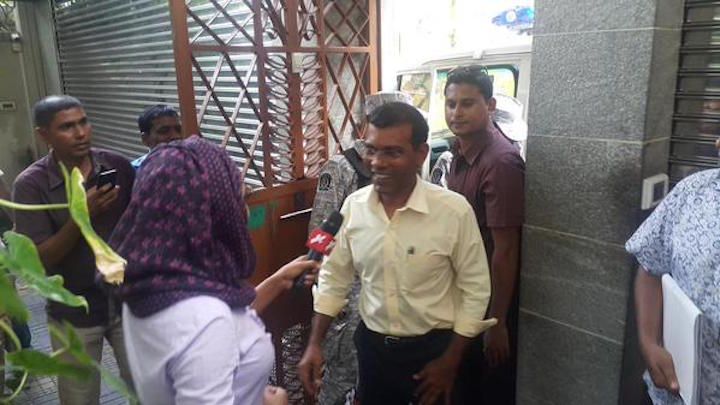Nasheed’s sentence was not commuted to house arrest, says Attorney General’s office
Former President Mohamed Nasheed’s 13-year jail term on a terrorism conviction was not commuted to house arrest, the Attorney General’s Office has said, raising fears that Nasheed may once again be transferred to prison.

20 Aug 2015, 09:00
The Attorney General’s Office had denied reports that former President Mohamed Nasheed’s 13-year jail term was commuted to house arrest on July 19, raising fears he could be transferred to prison at any time.
The opposition leader’s international lawyer Jared Genser told reporters in Colombo on July 24 that the government had “permanently moved President Nasheed to house arrest for the balance of his 13-year term in prison.”
The Maldivian high commission in Sri Lanka also confirmed the move to AFP whist Nasheed’s domestic legal team told The Maldives Independent that the decision had been communicated in writing.
“Nasheed’s house arrest was not officially commuted to house arrest. The Home Minister has not made such a decision,” deputy Attorney General Ismail Wisham told The Maldives Independent today.
Become a member
Get full access to our archive and personalise your experience.
Already a member?
Discussion
No comments yet. Be the first to share your thoughts!
No comments yet. Be the first to join the conversation!
Join the Conversation
Sign in to share your thoughts under an alias and take part in the discussion. Independent journalism thrives on open, respectful debate — your voice matters.




